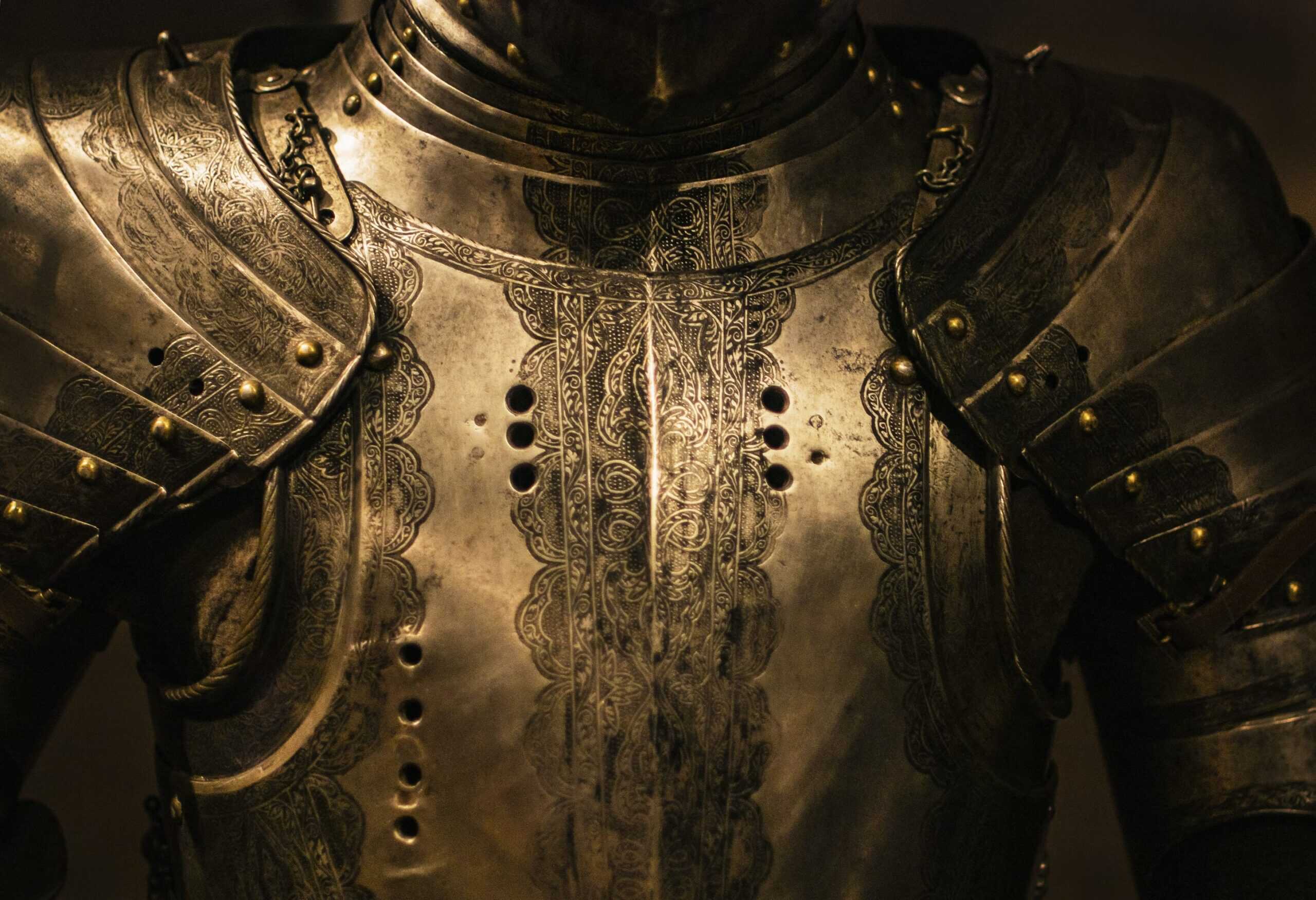St. Ignatius, born Íñigo López de Oñaz y Loyola, was once a knight and noble trained in all the graces of administration, romance, and war at the royal court of Castille. Like many young men his age, Ignatius dedicated himself to gaining renown, in particular to gain the affection of a young lady—the king’s own daughter!
No opportunity seemed better suited to achieving this end than convincing his commander—against common sense and the advice of all the other knights—to remain defiant in front of the far superior French forces besieging the Fortress of Pamplona. Their honor as true men of Castille demanded it, he claimed. Ignatius went on to lead the defense himself until a cannonball struck his legs, and you know the rest…
What you may not know, though, is how that providential cannonball shattered not only Ignatius’ body but also his entire conception of masculinity. To be a man in the eyes of his fellow countrymen—and still for many people these days—meant amassing riches, achieving sexual conquests, and obtaining power. Convalescing in his bed, the young man enamored with ruckus brawling and showing off his physique to the ladies of the court could no longer do what many in his age considered manly. All he could do was sit, read, and think. Thankfully for him, for God’s greater glory, and ultimately for you—he sat, read, and thought. Thumbing through books about Jesus and the lives of the saints, Ignatius had an indirect realization about masculinity.
Notably, masculinity, as understood by Christians during the Renaissance, was considered inseparable from their conception of virtue—habits of acting well. Virtue derives from the Latin word meaning man; therefore, to be good was literally to be manly, and to be manly was literally to be good in many regards. As such, Ignatius would not have thought critically about what it truly meant to be manly in and of itself. Instead, his realization concerned what it truly meant to be good, which in turn influenced how he thought he should act as a man.
For, during those months of healing and reading (in which he had his leg broken and reset twice to hopefully look good again in tights one day), he spent a lot of time not only musing on how he would like to spend the rest of his life but also on the subject of his books—Jesus Christ. Jesus Christ, for Ignatius, was the ideal man. He was and did everything a man—a virtuous man—was meant to do. In fact, the whole of Christian life, the lives of all the saints, is supposed to be a calling for us to be and act always more like him.
Ignatius, at this time, realized he was not good like Christ—the ideal man. Christ was not wealthy, lustful, or powerful. Christ always chose to be poor, chaste, and obedient when he could have been anything. Ignatius decided to model his life on Christ from then on, choosing poverty, chastity, and obedience in all that he experienced. He acknowledged that all his talents came from God and were meant to be used for His greater glory. He interacted with all others as brothers and sisters in Christ who were reflections of God’s own glorious diversity and, therefore, worthy of reverence. He understood that he could better accomplish God’s will and achieve his own happiness by paying sincere attention to and learning from those around him.
Three brief stories best exemplify this change in Ignatius. After making a pilgrimage to Jerusalem, he realized he felt called to be a priest and, therefore, had to learn Latin. Back then, one learned Latin in primary school, so Ignatius, in his mid-thirties, once a hot-blooded and vain youth arrested for severely beating a man over a mere insult, sat amongst ten-year-old boys and endured their taunts and jeers as peacefully as Christ at his crucifixion.
Moving to Paris afterward to study theology, Ignatius roomed with a nerdy farm boy who always prayed (Peter Faber) and a haughty jock who always partied (Francis Xavier). Xavier treated Ignatius harshly because their families had been on opposite sides in the last war (the same war in which Ignatius suffered his injury), and he also resented his budding friendship with the pious Faber. And yet, upon learning that Xavier’s family had gone bankrupt, Ignatius raised all of Xavier’s tuition in secret so he could finish his studies in Paris. After Xavier discovered that Ignatius had performed this act of generosity despite Xavier’s unkindness, he was moved to form a lifelong friendship with Ignatius. In their years as friends, Ignatius, Faber, and Xavier would each learn to appreciate and build up their unique, God-given differences as men.
Years later, in Rome, as the Superior General of the Jesuits, Ignatius had several thousand men at his command whom he could mission anywhere to do anything in the name of Christ. He had become, in many ways, the general he had always dreamt of being as a youth. One day, though, a Jesuit who lived with Ignatius fled the city after stealing money intended for the care of the poor. Months passed, and a letter pleading for forgiveness arrived from the same man, lying close to death in Northern Italy. At once, Ignatius left Rome on foot and traveled several hundred miles in only a few days to reach his bedside. Ignatius forgave the man immediately, paid for his medical expenses, and tended to him in his illness like the Good Samaritan himself. The proud Ignatius even willed himself to dance before the man to cheer his spirits. Thus, over years of honing his virtuous masculinity, Ignatius was able to respond like Christ to a man who had grievously wronged both him, his order, and the poor.
Had Ignatius remained the man his culture thought he should be—instead of embracing the man Christ was calling him to be—he would never have found the strength to persevere through the embarrassment, belittlement, and injustice needed to transform the world for God’s greater glory.
In the modern world, it’s as hard to act as a true man as it was in the times of Ignatius. Contemporary culture proposes many competing models of masculinity. Nearly all impose a strict uniformity of “proper” masculine expression and are geared towards worshiping the self. Ignatius knew well from personal experience that a constrained masculinity ordered solely towards serving the self leaves one feeling hollow, prideful, confused, and alone. For, within that perspective, one loses sight of what is truly good about being a man.
Instead, Ignatius found an authentic, life-giving masculinity in Christ, and he invites us to do the same. Discover what aspects of masculinity bring about true peace and God’s greater glory, and cultivate them. For what does the Lord require? “Only to do justice, to love goodness, and to walk humbly with your God” (Micah 6:8)—that is true masculinity.


